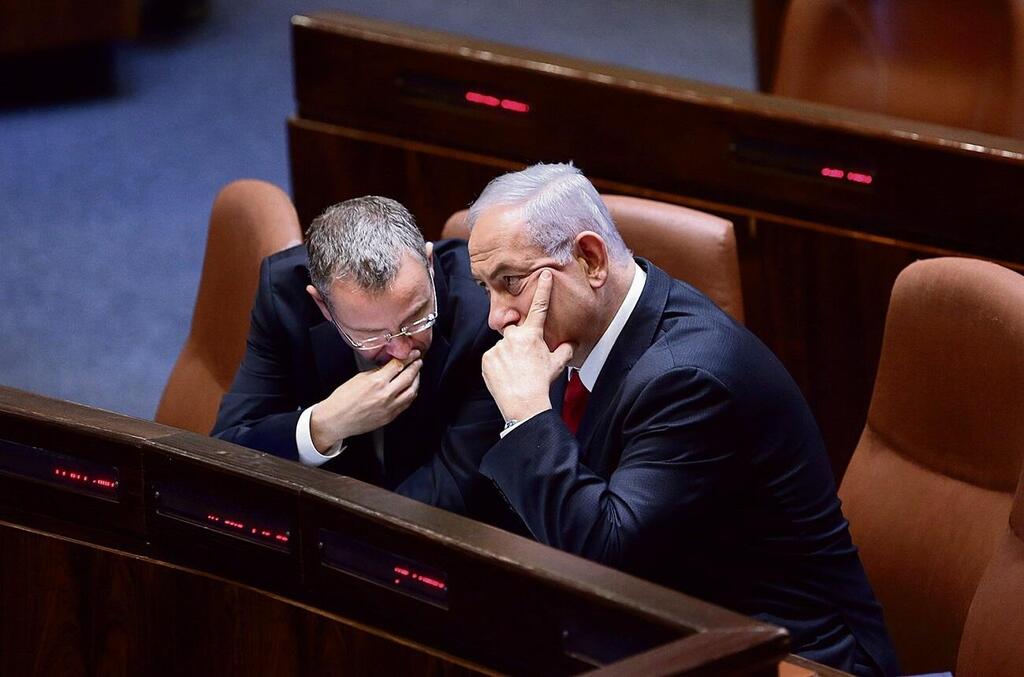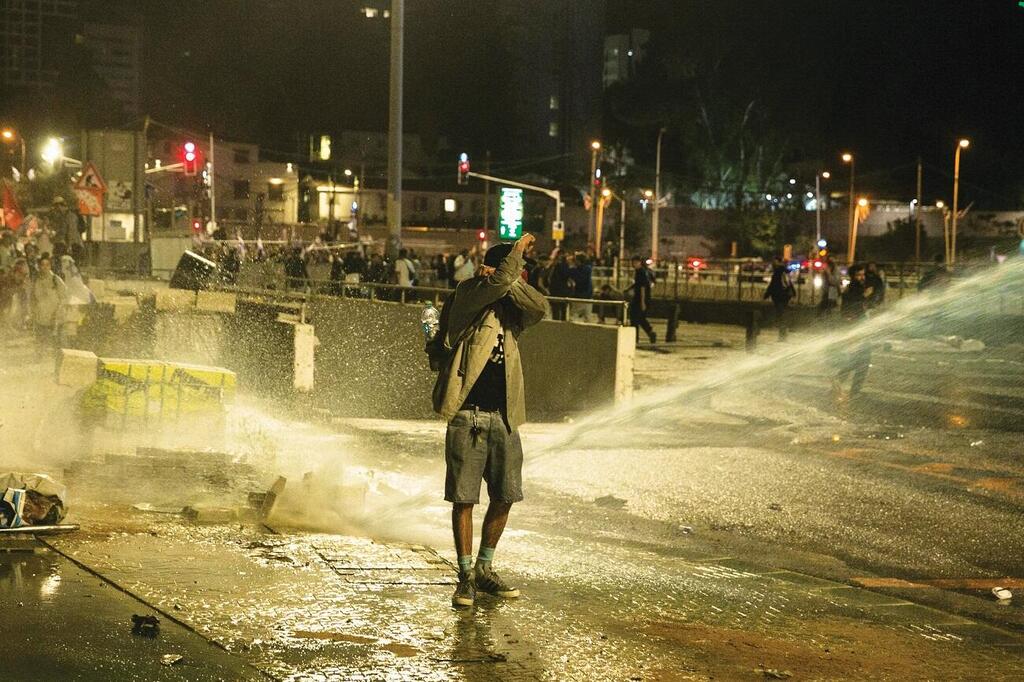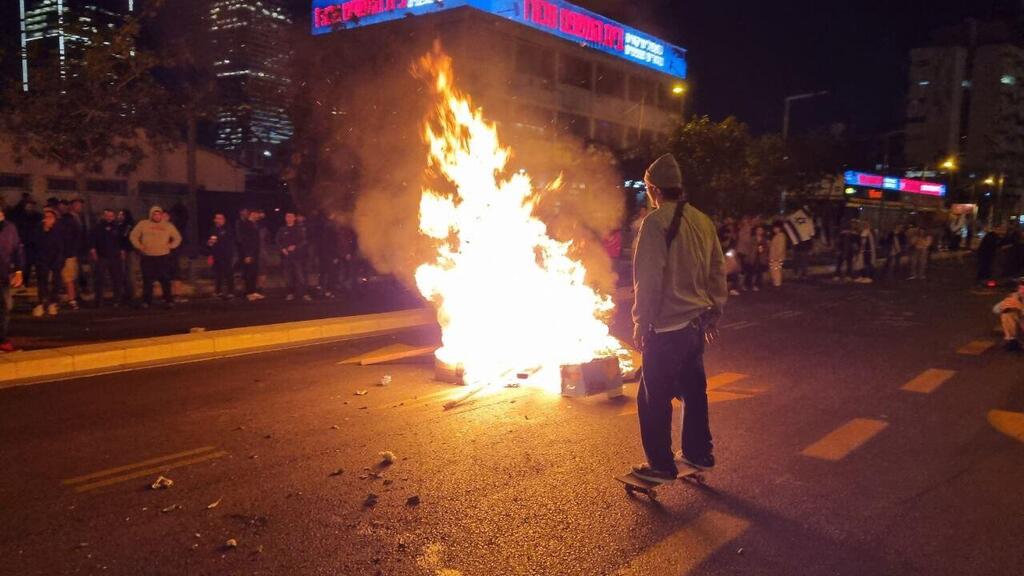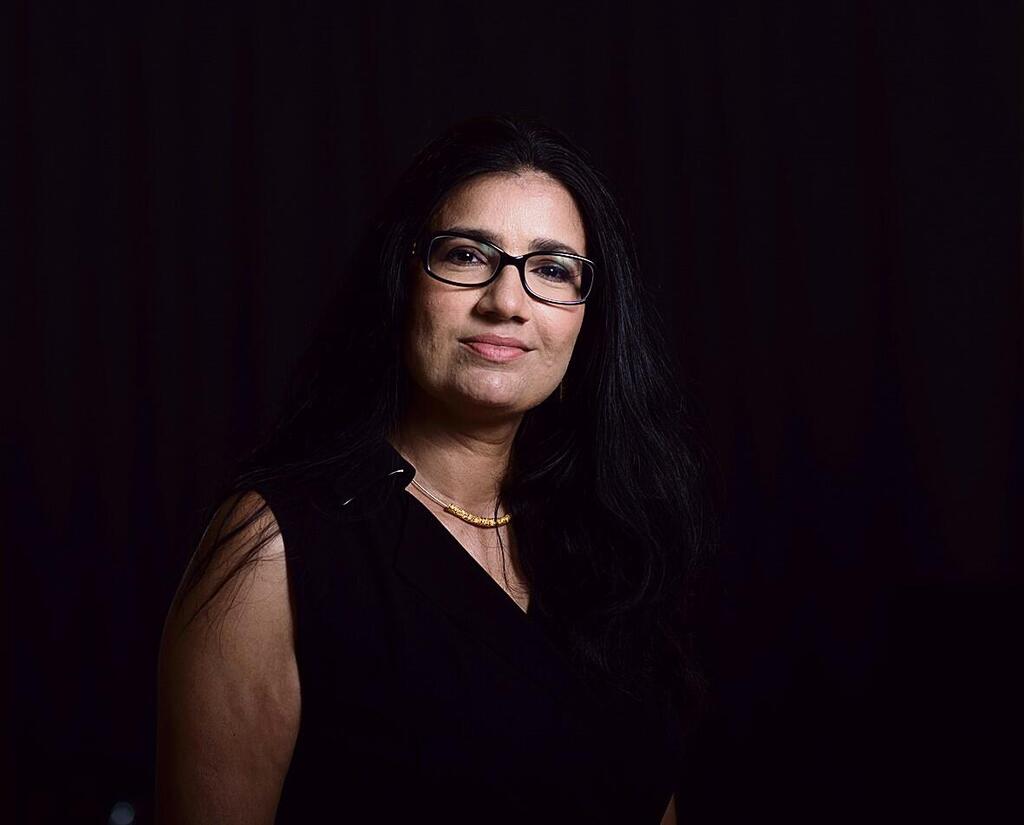Getting your Trinity Audio player ready...
"I don't sleep at night, I wake up with night terrors, sometimes about a civil war, sometimes about an all-out war with Israel's enemies," says Ohad (real name withheld), a 40-year-old man from northern Israel.
His experience is sadly not unique, as the tempestuous political reality gripping Israel lately has raised the level of anxiety among many citizens who cannot tell what the future holds for them and their families.
Back in 2017, studies in the United States found a clear connection between the political reality and the anxiety level of those who were displeased by president Donald Trump's political ascendancy. This phenomenon has been dubbed "electoral post-trauma".
With Ohad, it manifests quite severely. "I feel pressure in my chest and difficulty breathing several times a day," he says. "I'm constantly feeding off news reports, I see the escalating discourse, the judge selection committee, people protesting in the street, and I don't know how I'm supposed to be feeling."
Mostly, the anxiety is coming from those who oppose Netanyahu's government and the judicial overhaul, but with protests on both sides reaching a zenith as of late, no one is immune from feeling a sense of anxiety.
"On the one hand, I'm happy to see the people protesting the overhaul, but then I have fear of blood being spilled and our enemies taking advantage of our internal dispute," he says. "I'm scared for my children's lives and the thought of getting a foreign passport has crossed my mind even though I'm ashamed of it."
With Israelis across the country, the lack of serenity in the political sphere means rising anxiety levels population-wide, as 200 Israelis call the 1201 national anxiety hotline every day.
Operators say it comes from all sides of the political spectrum, all genders, ethnicities and religious convictions. Anxiety knows no such boundaries.
"Regardless of when I go to sleep, I wake up in the middle of the night with anxious thoughts," says Jonathan, a 50-year-old man who lives in central Israel, who writes political posts to help alleviate some of the tension. "It's the only outlet I get from this anxiety, but then again, each piece of news makes me write a new post and I'm getting obsessive over it."
"If there's no democracy, there's no reason to live here," says Shira, a woman who has been attending every demonstration since the judicial overhaul was initially announced. "I'm a member of 10 WhatsApp groups about the protests. At the end of the day, the accumulative effect gets me feeling like the world is falling apart."
"We're all experiencing a mental state of emergency," says Dr. Yoav Grubase, a clinical psychologist. "Events here have been building up for years, since we went through four years of political instability, not to mention a pandemic. And now, with institutions that grant stability under political threat, it gets people thinking that the ground underneath their feet is about to swallow them whole."
Some, Dr. Grubase says, sense euphoria when protesting. "It's a case-by-case basis. Our mood is fickle. When we're protesting, we get a sense of togetherness and euphoria tends to set in, but the downside is that the rest of the time, we're constantly bombarded by more anxiety-inducing news bits, which fuels a bad cycle.
How does it affect those who support the reform? Their side is in power, so they should feel better overall.
"They sense the anxiety too. Some of them think their world will fall apart if the reform doesn't materialize. If their side is in power but the desired policies don't go through, they'll feel like something has been stolen from them, which could fuel more ramifications."
Ohad himself doesn't go to the protests due to his job in the public sector, but his wife and kids do, and he constantly feels worried something will happen to them and he won't be there to help.
"They've been spat at," he says. "My kids have heard the kind of profanity I never wanted them to hear. What breaks my heart is that I suddenly see friends whom I've always appreciated speaking passionately for the reform, following the government blindly.
"On the other hand, I feel bad for them because they've been going around for years, feeling like their voices hadn't been noticed."
A study by Prof. Kevin Smith of the University of Nebraska found that stress, political obsessiveness and insomnia are common among young people who held views associated with the political left, but says that sometimes going out and protesting could be a useful outlet.
"When you feel like you're doing something that is useful or at the very least civic-minded, it inserts a sense of competency into a stressful situation, which helps us feel better and more secure."
On the other hand, participating in protests can lead to an altercation with the police, which can turn unpleasant and very stressful. It makes people think that even the people who were assigned to protect them are against them. That said, Dr. Grubase says that should not hinder people from bringing their children along.
"It gives them a civic lesson no school could ever match," he says. "It helps foster a civic-minded society, but it also could make them feel somewhat insecure."
All anxiety assistance hotlines are reporting a substantial increase in the volume of incoming calls. Some of the calls are from veterans and people suffering from PTSD. "Those who gave their well-being for the security of the country should not be worried about the collapse of democracy or a civil war," says Dr. Nira Kaplansky, an anxiety hotline manager.
6 View gallery


Legislation fast approaching, people sense an impending disaster
(Photo: Alex kolomoisky)
"Now with Independence Day approaching and many of them already anxious about the sound of firecrackers, this is the last thing they need. Some of them are talking about leaving the country, and they're the ones that are supposed to protect us."
How do they describe their anxieties?
"They exert a lot of mental focus and effort just to get out of bed or go to work. They live an anxious enough life as it is, and it makes them feel like there is no appreciation for the sacrifice they've endured. Trauma makes no distinctions between left and right."
What are the reasons that veterans say caused that anxiety to begin with?
"When they hear about reservists not showing up, it invokes fear that the IDF, which has been such a monumental part of their lives, is falling apart, and putting doomsday thoughts aside is not that easy for them."
Dr. Shiri Daniels, a professional hotline manager, says: "We get more than 800 calls a day, and about 200 of them are about the political situation, which is an unprecedented volume of calls. Two-thirds of the calls are from women. It's now part of many families' internal disputes."
Ronny, a 42-year-old married woman, objects strongly to the reform, but her husband is very much in favor. "He admires Levin and Rothman," she says. "Now we're fighting over what channel we're watching. It feels like my family is falling apart."
How is it coming across?
"We were driving to work together this week, and the news was on. Within minutes, we were shouting at each other. At some point, he just left the car and walked home angry. It's starting to affect the kids.
"Sometimes he tries to tell me how the Supreme Court has been screwing the country over and now it's our punishment. If we get a divorce, no Knesset member will help us. He's been telling me that the day his side wakes up, the country will burn. It's terrifying, and it's happening in my living room."
Dr. Daniels says these fears are getting more common, with many speaking of emigrating away from Israel.
What other concerns are being mentioned by the callers?
"People are afraid of a civil war, and they think of leaving. Of how life will be like once the reform is passed. One mother was worried that her daughter will be hurt during the protests. Many others are angry, feeling the public space has been taken away from them. Then there are those experiencing hatred online."
There was also a sense of losing control during COVID, so what's different?
"There are similarities, but at least then it felt we were all coping with the same threat, so there was more solidarity. Now the sense of 'us vs them' is much more pronounced. We stigmatize people based on their politics.
"People feel sad, anxious, depressed and even avoid activities they used to cherish and engage in routinely. Others go as far as describing physical ailments and pain."
What kind of calls do you receive from those who support the reform?
"They're anxious as well, keeping silent at their workplace when most there oppose the reform. Even the words used to describe it can be a giveaway. Those who say reform tend to support it and those who use the term coup are against it.
"Others are conflicted. They voted for Netanyahu, but oppose the path he's now taking. They're not sure how they're supposed to feel and are increasingly isolated. Both sides are feeling it and the intensity of how people feel is way over the top."
Who calls you more?
"Most callers oppose the reform, but it's not a huge difference. Callers tend to be between 25 and 55 years old and they worry about work, relationships and parenting. You have parents of LGBT kids and women, both groups apprehensive about a fanatic right-wing government."
What are your recommendations?
"The fact that they've called is a major step in the right direction. They give their feelings a voice. Some are surprised by how much this issue occupies them. We talk to them about creating what's called 'islands of control', raising their awareness about what preceded their anxiety.
"We sometimes engage in breathing exercises, promoting relaxation and focus. It helps since you can't be focused on your breathing and letting things go while at the same time feeling anxiety."
Dr. Adva Wangrober, a clinical psychologist, believes that much of the anxiety about this issue stems from how incredibly fast this legislation is being pushed through. "It makes people feel a loss of control and an impending disaster. It doesn't matter if you're for or against the legislation. The speed in which it's moving makes people take drastic actions."
How does the response manifest itself?
"When we're anxious, our thought process reverts to something more simplistic, so we think two-dimensionally instead of three-dimensionally. Life is black and white. All things turn binary. We feed off the corrosive conversation among politicians and replicate it."






